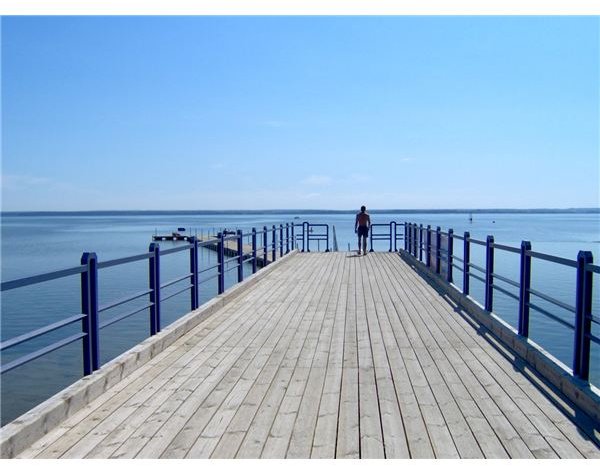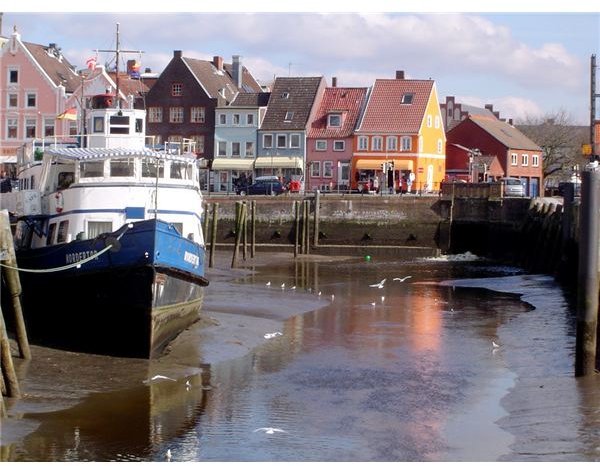Working At Sea & Saving Money: How & Why to Do It
I Needed Money
At one time, I was in despair about my future. I had tried working at clerical jobs in the daytime, and undertaking a correspondence course at night to gain my legal qualifications, but that had not worked. I simply could not even begin to conquer the mounds of assignments that arrived in the post. I needed to be at a college, attending courses and getting feedback on my progress. But I had no funds to pay for that.
Out of the blue, I heard that a friend had found work on an ocean-going ship which was up for charter as a geological survey ship. The company was looking for more recruits and I applied. The recruitment process was quick and easy and I was taken on in next to no time. I joined the ship in Edinburgh, apprehensive but excited, only to experience an extreme culture shock.
Lost in Translation
Every person working on that ship had a different local accent of the very densest. There was a Scottish deckhand, an engineer from Newcastle, and a Liverpudlian, just to start with, and literally I was unable to follow what they were saying. Not only that, but the shipboard sense of humor was broad to say the least, and practical jokes, both verbal and physical, were the favorite entertainment. I was lost, and spent what seemed like a long time feeling quite disorientated.
A Life on the Ocean Wave and Onwards

But gradually, as the days turned into weeks, I found my feet and started to love the life. We were out at sea three weeks at a time, pulling in to various ports around the North Sea for a couple of days to stock up on supplies in-between. The tedium of the times at sea was broken by growing comradeship with the other workers on board, as well as the beauty of the sea itself, in its changing moods. The daily challenges of cooking at sea on a temperamental oil stove, and cooking full breakfasts plus two three course meals a day from scratch for 20, also kept things interesting. Then coming in to land at the drabbest port you could imagine, after three weeks at sea, was like arriving in heaven.
So the time started to pass pleasantly, and savings started to accumulate. The pay and the conditions were such that after a year of working I had saved, with no effort at all on my part, enough to see me through my final year in college in comfort. You were allowed a week’s leave for every two weeks working at sea (not uncommon); if you didn’t take that leave, but instead worked through, you could save it up. At the end of the year my saved shore leave was such that I was on full pay for the following four months. Further, there were no expenses at sea: no rent, no bills and no food to buy. Whatever your efforts to spend like a proper sailor during the couple of days in port, it barely makes a dent in the wages being deposited in the bank for the rest of the time.
I completed my qualifications, and worked as a lawyer for the next 30 years, less some time off for children.
A Few Words of Warning
I would not hesitate to recommend the sea-faring life to a person in a similar fix, but I would want to issue a few warnings as well.
You may be shocked at first by the on board culture of teasing and jokes. Keep your head down for a while. Don’t go along with anything in the way of a practical joke that you feel uneasy about, but think twice before coming out with direct criticisms until you know the ropes. You may feel swamped by the strangeness of the sea-board society and you will be far from home, but remember that you are still yourself: don’t try to be something you are not. You will feel better before long.
Don’t drink too much on shore leave and miss the boat when it sails. It was thanks to a new cook doing just that that I got the chance to cook as well as clean and make beds, making my sea-going life a lot more interesting.
You will likely be taken on for one or two trips to start with. Some boats will be away from port for weeks at a time and some only go out for short times; a day or two for example, bringing supplies to an oil rig. The boats that go out for longer periods of time will be more likely to need specialized ‘service’ workers like cooks and stewardesses. On really short trips those duties may be shared by other crew members. When working on cruise ships, there is obviously a large demand for workers to provide all sorts of services to the passengers.
Fair Prospects Ahead

Qualifications are not always needed. For a basic deck-hand, though experience may be preferred, those with none may well be taken on after a couple of days training. They will be expected to work towards deckhand qualifications ( ‘deckies tickets’). The same applies to stewarding and other service type jobs.
There are a number of web-sites that advertise jobs at sea, like Seabourn Careers. The US Bureau of Statistics tells us that the area of work is growing faster than the economy in general. The wages are not amazing, but given you will have no rent or bills, the potential savings certainly can be!
References
Sources:
- Personal Experience
- US Bureau of Labor Statistics (Water Transportation Occupations), https://www.bls.gov/iag/tgs/iag483.htm
- Ocean Opportunities, https://www.oceanopportunities.com/
- Seabourn Careers, https://www.seabourncareers.com/
Image Credits:
- ‘Husum Harbour’ by Atelier Joly: Wikimedia Commons
- ‘Bay of Puck in the evening’ by Krysztof: Wikimedia Commons
- ‘Zatoka Pucka - Chałupy - Półwysep Helski’ by Krysztof: Wikimedia Commons
All images released under Creative Commons License 3.0
